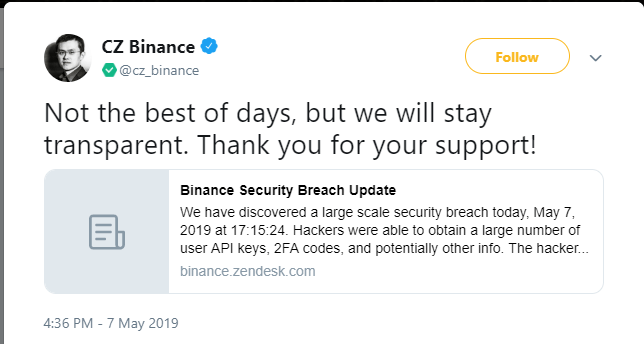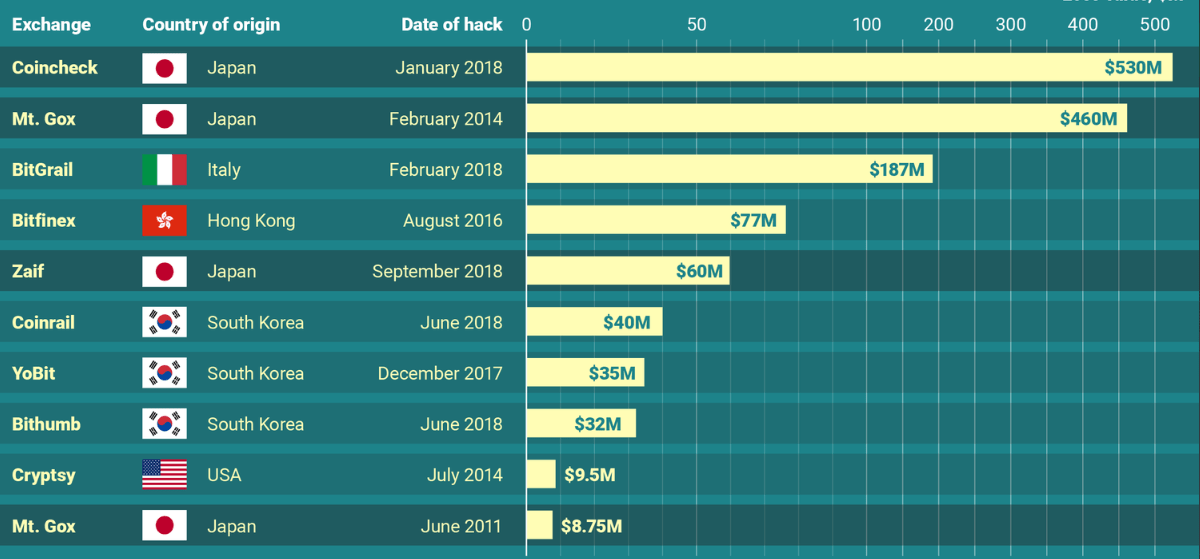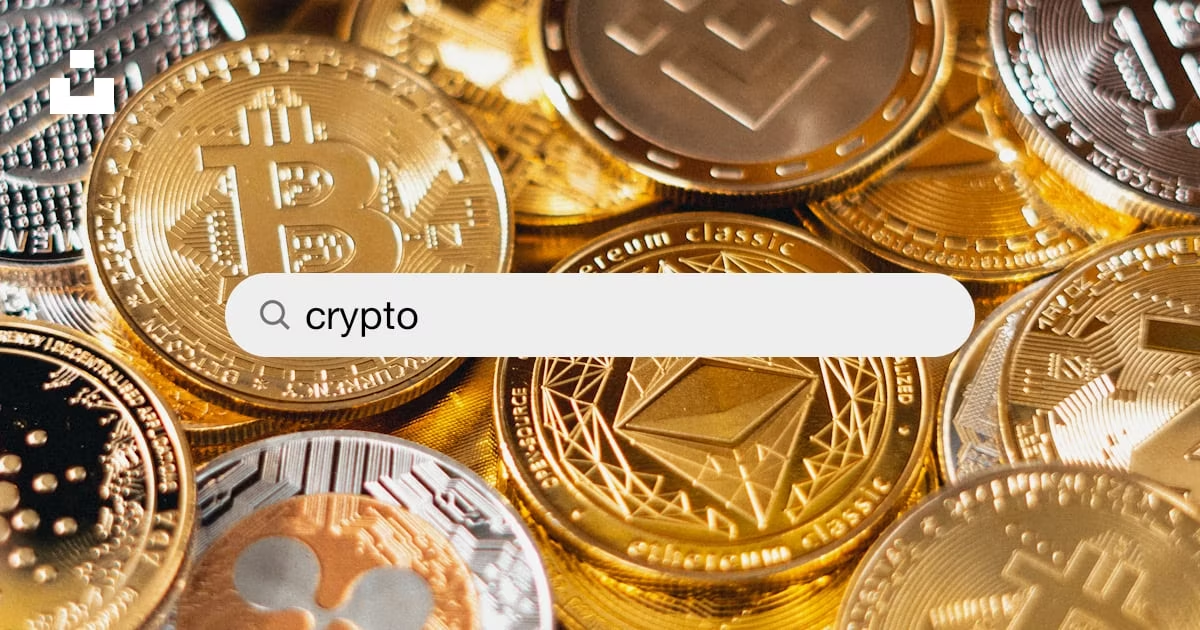Reason to trust

How Our News is Made
Strict editorial policy that focuses on accuracy, relevance, and impartiality
Ad discliamer
Morbi pretium leo et nisl aliquam mollis. Quisque arcu lorem, ultricies quis pellentesque nec, ullamcorper eu odio.
If you’ve spent some time trading cryptocurrencies and digital assets, you’d know that it comes with a fair share of risks. There is volatility risk, storage risk and exchange risk. Exchange risk is arguably the most frustrating risk to manage because besides for selecting your exchange – the risk is very much out of your control.
Navaho de Wet, co-founder of exchange Counter commented that, “this problem is not going to go away anytime soon. Centralised exchanges remain vulnerable and attractive to criminals.” Going on to explain how the security limitations of centralized exchanges are a systemic risk to the crypto ecosystem.
Binance, one of the worlds largest cryptocurrency exchanges announced on Tuesday 7th of May that over $40 000 000 worth of bitcoin (around 7000 BTC) had been taken in what was described as a “large scale” security breach. The hack appeared to have been well orchestrated and made use of a number of tools and techniques including phishing, virus infection and more which enabled them to get a hold of API keys, two factor authentication codes and other critical account information.

The attack follows suit after 2018 was dubbed a record-breaking year for crypto exchange hacks. In 2018 more than $800 million was thought to have been stolen over a string of hacks on centralized exchanges. Although this week’s event was highly unexpected by users and the general public due to the prominence and seemingly tight security at Binance. It begs the question – are any centralized exchanges truly safe? Who is the next target?
It seems very clear that criminals are becoming more sophisticated in their hacks and appear to be comfortable in playing the patient game in order to ensure maximum gains. This is a trend that is unlikely to disappear. In fact, as cryptocurrency and digital assets become more mainstream and begin to draw more attention so it will attract smarter and more organized criminals and criminal organisations.
Centralized exchanges like Binance pose a high risk and there is only so much that can be done to mitigate it. These types of exchanges (Binance, Coinbase, OKEx etc.) are centralized by design. This means that when a user wants to trade on the exchange, they are required to deposit their funds into the wallet of the exchange – effectively transferring the custody of that asset to the exchange. The exchange manages user funds using a network of hot and cold wallets, pooling user funds together and executing trades on the instruction of their users. History has shown us that these honey pots of user funds are what makes these exchanges so attractive to criminals.

Source: https://ihodl.com/infographics/2018-09-20/chart-day-hackers-prefer-japanese-crypto-exchanges/
Non-custodial (decentralized) exchanges are the answer. Shortly after 2018, “the year of exchange hacks” ended we were introduced to a responding narrative that 2019 would be the year of decentralized exchanges. Over the course of 2019 exchange hacks have continued to occur and decentralized exchanges continue to improve – a continuation of this trend will see the narrative reign true.
The advantage of decentralised exchanges (DEXs) over centralised exchange is security. Decentralized exchanges are safer, more secure and less attractive to criminals because they make use of non-custodial solutions.
Counter, Ethereum’s fastest non-custodial exchange is a great example which makes use of “smart custody” where the exchange replaces pooled wallets with a smart contract. This is significant because it means that a user maintains control of their funds throughout the entire trading process until a trade is being executed. There is no transfer of custody, there is no pooling of funds and there is no way for the exchange to move, lose or steal any of a user’s assets. It is simply not possible.

Counter is using smart custody solutions to solve problems for smart traders. If you’re smart, you’re safe.
Be safe.
Sign up to Counter with code “TRADESAFE” and receive 3 months of zero-fee trading!
Image: Pixabay


























